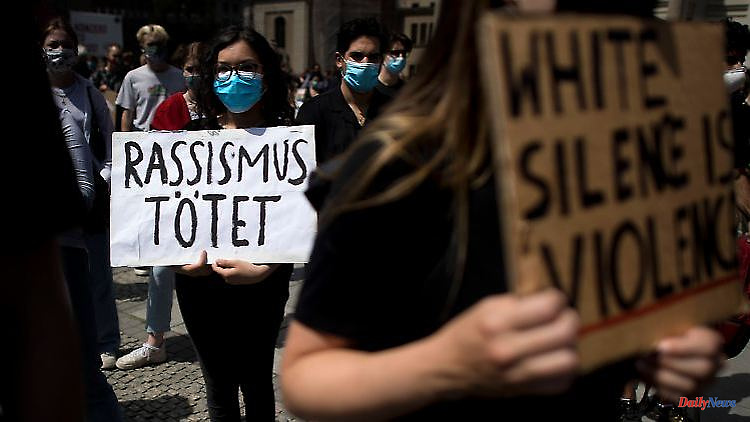Even three years after the Hanau attack that killed nine people, racism remains omnipresent in Germany. More and more people are looking for help against discrimination. Right-wing extremists have also been growing since the beginning of the pandemic, experts warn.
According to experts, the number of people seeking advice after racist incidents has increased noticeably nationwide and also in Hesse over the past two to three years. This is probably also due to the fact that such incidents, which affect a large number of people, are now seen and named more clearly, said Reiner Becker, head of the Hesse Democracy Center based at the Philipps University in Marburg. For Becker, this is also related to the processing and debate about acts such as the racist attack in Hanau, which is celebrating its third anniversary this Sunday.
"These murders are based on attitudes and prejudices that are widespread and not abstract," said Becker. The work that initiatives are doing not only in Hanau but also nationwide to draw attention to the topic is all the more important. "The initiatives are the thorn in the flesh. We live in a society that needs this thorn," said Becker. On February 19, 2020, a 43-year-old German shot nine people in Hanau for racist reasons. He then killed his mother and himself. The bereaved and survivors had joined forces in an initiative that advocated a complete investigation of the crime and its consequences.
From Becker's point of view, this merger of the victims' relatives was an essential step that did not exist in this form in other racist acts such as the arson attack in Mölln in 1992 or the attack in Halle in 2019. He gave the voices and perspectives of those affected a broad response.
When the anniversary is celebrated on Sunday with guests and media attention in Hanau, the other 364 days of the year should not be forgotten when, depending on the individual situation, the bereaved and affected may fall back on themselves, need support - whether through therapeutic help, when dealing with authorities, personal encounters or conversations. Therefore, local and low-threshold psychosocial counseling services in Hanau are currently and will continue to be necessary, said Becker. The investigative committee of the Hessian state parliament also made it clear that the act and its consequences were "overtaxing all systems".
Becker also sees certain progress in the fight against right-wing extremism - for example through the implementation of measures from the 89-point plan against racism and right-wing extremism decided by the cabinet at the time in 2020. This includes, for example, the upgrading of the security authorities or the promotion and expansion of projects, said the expert. "But we won't be able to solve the problem with programs alone."
This can be seen, for example, in the phenomenon of Reich citizens, but also in more diffuse currents that most recently developed during the corona pandemic. "The clarity has been lost," said Becker. Major conflicts are also currently emerging in the context of taking in refugees. A "vague departure from the democratic system" can be observed, even if the protagonists are not "right-wing extremists per se". Rather, there is a close connection with crises such as the pandemic or the consequences of the Russian war of aggression in Ukraine. Becker warned that the future escalation of the climate crisis with potential restrictions could fuel anti-democratic tendencies.












